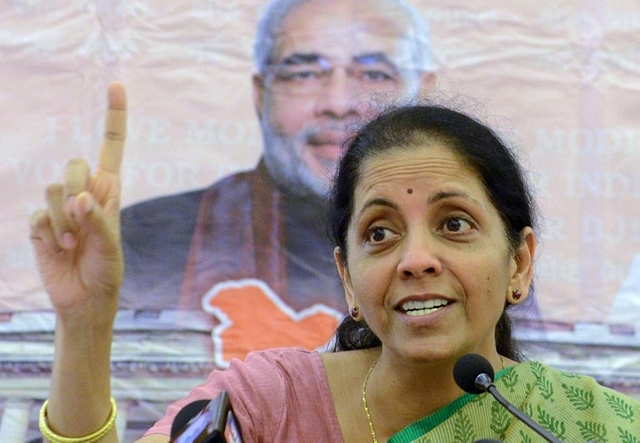
Sitharaman Talks Tough at Nairobi; But Real Test Lies Ahead
Commerce minister Nirmala Sitharaman will be under close watch for her performance at the tenth ministerial meeting of the World Trade Organisation currently under way in Nairobi.
Commerce minister Nirmala Sitharaman will be under close watch for her performance at the tenth ministerial meeting of the World Trade Organisation currently under way in Nairobi. She has a tough legacy to live up to.
Three of her predecessors – Murasoli Maran, Arun Jaitley and Kamal Nath – gained reputations as formidable negotiators and were often dubbed as stubborn spoilers by negotiators from the advanced economies, especially the United States and the European Union.
Going by her speech at the plenary session on Wednesday and in a meeting on agriculture negotiations, Sitharaman may also prove a tough nut to crack.
After the initial inane pleasantries, she lost no time in setting out India’s disappointment. India, she said, had come to the conference with an open mind, determined to make it a success, but found that “the situation could be more encouraging”. She drew attention to the manner and haste with which important negotiating meetings are being convened. That, she said, just does not inspire confidence.
She did not pussy-foot around in pointing out how the developed countries were shying away from their responsibilities and commitments. Taking up the issue of agricultural subsidies, Sitharaman pointed out that “the reduction in the massive subsidization of the farm sector in developed countries which was the clear cut mandate of the DDA [Doha Development Agenda] is now not even a subject matter of discussion today, leave aside serious negotiations”.
Was she pointing a finger at the WTO secretariat itself, on which the United States and European Union are believed to hold undue influence?
(The developed countries were to slash the subsidies, also known as domestic support, that they give their agricultural sector because these distort international trade and put agricultural goods of developing countries at a disadvantage. The developed countries have found ways to get around these commitment, much to the chagrin of the developing countries and this has been a huge source of friction.)
Sitharaman slammed the way issues relating to agriculture which were of interest to developing countries (the reduction in domestic support by developed countries, providing developing countries with special safeguard mechanism to protect their farmers from spikes in cheap imports and public stockholding of food grains for food security) were being postponed, while there was “a sudden inexplicable zeal” to push an agreement on export competition. “On this we are told that there is convergence when in fact, there appears to be little.”
The issue of export competition relates to the framing of rules relating to providing export credits to agriculture. The United States, which is the main user of export credits, wants the new rules to be tailored to protecting its existing schemes. Some developing countries which are large exporters of agricultural goods are also keen on getting a favourable outcome on this.
At the meeting on agriculture, she pointed out that export competition was just one of the three pillars of agriculture negotiations and taking that out would disturb the balance. New concepts and definitions were being introduced at a late stage and would require extensive domestic consultations, she insisted.
At the plenary, Sitharaman also spoke out against “new issues of recent vintage” being taken up “with unusual enthusiasm”. This was a reference to the issue of export competition as well as the attempt by developed countries to get new issues into the negotiating agenda. The known ones are investment, transparency in government procurement and competition, which are seen as non-trade issues. “I have taken careful note of calls by some members to commence work on “new issues” within the WTO. . . we should resist the temptation of overloading the WTO agenda at this stage with “new issues” when we are still grappling with the completion of work in the DDA.”
Sitharaman’s mettle will be under trial as countries go into a huddle in groups or otherwise to negotiate on all the contentious issues. Her first test of fire came last year within less than two months of assuming office. India was to agree to the protocol on the Trade Facilitation Agreement (TFA) by 31 July, but held out till it had got an assurance that a peace clause on public stockholding for food security that her immediate predecessor Anand Sharma had got at the Bali ministerial in 2013 would continue till a permanent solution was found to the issue. (With the peace clause in operation, India or any other country holding massive public stocks of food grains for food security will not be dragged to the WTO dispute redressal mechanism for breaching acceptable subsidy ceilings.)
But that was just a trial. Sithraman’s real test will begin now. She will need all the luck she has, and the full support of the government.